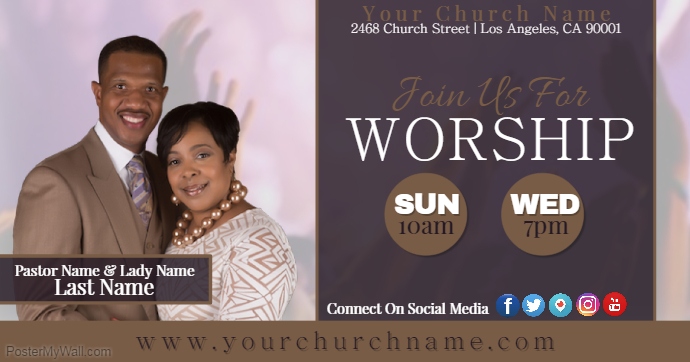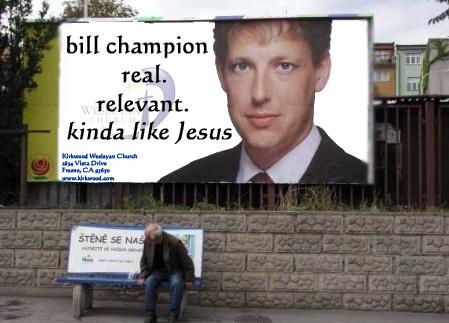Hyper Focus on the Local Church and Unintended Consequences
There has been a great push in the United Methodist Church over the past several years to emphasis the local church. This is great! I am a local church fan. In case you don't know I serve in a local church and love every part of the local church. I truly believe ministry happens in the local church. I also believe that ministry is not limited to the local church.
The hyper focus on the local church is has many positives, however it also contributes to an erosion of the connection that binds United Methodist Church clergy. Could it be the emphasis on the local church has unintentionally contributed to the divide in the church?
Consider the trend for longer appointments for clergy at a local church. There are many benefits to have an effective pastor serve at a local church for a long time (see pages 45-50 in the Tower Watson Report: Call to Action). A church with an effective pastor who has served that church for at least ten years sees greater parishioner attendance, engagement and growth compared to effective pastors serving less than ten years. Longer appointments also mean that a pastor will serve fewer congregations over her/his ministry. This means pastors have little incentive to connect with other pastors and get to know other churches. The odds of a pastor working with others pastors or other churches are much lower than the past when the majority of pastors were moved every two-three years.
Perhaps more nefarious is the longer the appointment of a pastor means that pastors forget that we are only stewards of a position. We all know that we treat something that we are only borrowing differently than if we own it. When a pastor beings to believe that it is "my pulpit" then perhaps that pastor has forgotten that every pulpit is God's and pastors are only trusted stewards.
Hyper focus and unitended consequences
Another unintended consequence to the hyper focus on the local church is in the overall mindset toward the administrative structures of the UMC. Many local churches have been made to feel they are the prized child and that their voice is the ultimate voice. This leads to a great suspicion of anyone outside of the local church but who still carries the cross and flame. Bishops are jerks who don't do anything. District Superintendents are harbingers of bad news. Apportionments are taxes that sap a local church. The General Church is waste of money and time. The Judicial Council makes rulings that are hostile to the local church.
The hyper focus on the local church means that overtime the local church forgets that they were birthed from a larger mother church (the UMC). When we forget where we come from we resent the systems that were critical to our birth. Resentment comes out by no longer seeing the necessity of the very systems that were critical to your birth. Overtime resentful feelings boil into hostility toward the other until trust is broken down.
The emphasis on the local church is great, but we are now seeing the difficult parts of these the unintended consequences.
Great Pastor Theory of Church Leadership
Prior to pursuing a degree in political science, I thought I would study history. I am not a great historian, in part because I am captured by different interests, however I did understand at least one thing about being a historian. Historians that I took classes from were trained to think about what are the wheels that turn history. For the vast majority of the classes I took, it was understood that history is moved and shaped by institutions. These institutions range in construction. They could be nations, states, governments, non-profits, businesses, philosophies, etc.
There was one professor who challenged the idea that institutions drive history. He thought that history is moved by "great men/women." The argument is that every nation has a founder, every war a general, every idea a thinker, every business a creator. Apple did not shape recent history, it was Steve Jobs, Rome was powerful but it was animated by the Caesars. It is Great Men, who move history - not institutions.
Since the heyday of Great Man theory in the 19th century, it has been seen as "primitive, childish and unscientific." However, the "Great Man" theory still has a lot of life in the world of the Church. Specifically the pastor.
We have all seen billboards advertising churches which have a picture of the pastor offset to the right of the billboard while the name of the church is offset to the left. Sometimes, in order to build some credibility, the pastor (usually a male) has his wife in the picture. Here are some of those examples:
For reasons I cannot place my finger on, the rest of the world sees the folly of the "Great Man" theory, but many church leaders have not. The UMC has an emphasis on leadership, and the way leadership is understood is by way of the "Great Man" leader. Some examples are:
- The pastor is the one who casts the vision
- The pastor is the face of the church
- The pastor is the "CEO"
- Nothing happens unless the pastor signs off on it
- If the church grows or dwindles in number, it is the result of the pastor
- Pastors are on billboards
The "Great Pastor" theory of church leadership is misguided for so many reasons, but for first and foremost is that the leadership is defined by Jesus much differently than what we think about when we think "great". Greatness in the eyes of Jesus is the one who becomes like a child. Greatness according to Jesus is one who serves. Greatness is the one who follows - not leads. Greatness is the one who sits at the lowest seats. Greatness is the one who dies to self.
Great Pastor theory works in some places for some period of time, however the Church is built on Christ. Christ is the leader. The pastor is a follower. The history of the church is not moved by pastors but moved by the body of Christ (i.e. the people).
No servant is greater than the master and, from what I know about Jesus, he was never on a billboard.
Pentecost and Moses
There are several connections between the story of Pentecost in Acts 2 and the story of the tower of Babel in Genesis 11. It is worth your prayerful consideration how the story of Pentecost reverses the tower of Babel. It is also worth considering the ways Pentecost connects with the story of Moses. Specifically the fire that does not consume.
Moses encountered a bush that is not consumed by fire. The disciples at Pentecost were on fire but were not consumed. There is a lot to unpack here, but might I just offer this one insight: God does not consume us, but allows us to consume him.
In the communion liturgy and sacrament, it is God that offers himself for our consumption. God allows God-self to be consumed by the community, Where primitive religions fear a God that will consume (kill) them, the God manifest in Jesus Christ shows a God that does not consume humans. Philippians 2 speaks of Christ who did not see equality with God as something to be exploited but Christ emptied himself and took the form of a slave - willing to be crucified.
I commend to your prayer life the question of what does it say that God is willing to be consumed rather than be the one who consumes? For some this is scandalous. To others this is foolish. But Christ crucified is Good News.

Be the change by Jason Valendy is licensed under a Creative Commons Attribution-NonCommercial-ShareAlike 3.0 Unported License.

















